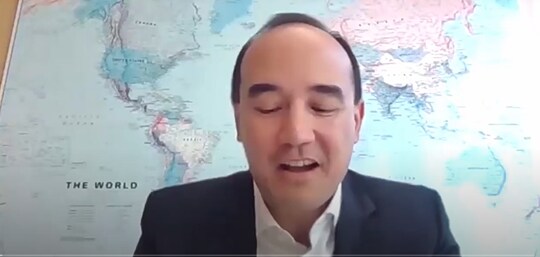
Free Trade Zones: How to combat illicit trade and counterfeiting
OCTOBER 06, 2021

Free trade zones play a crucial role in the global economy. Across the world, these zones are proven to be an effective way to nurture economic development and prosperity. However, despite the numerous benefits they offer, free trade zones can be exploited by criminals—who, for example, use them to smuggle counterfeit and other illegal products.
In a recent policy dialogue, the International Trademark Association (INTA) and the World Free Zones Organization (World FZO) discussed the vulnerabilities surrounding free trade zones.
PMI’s Global Head of Illicit Trade Prevention (ITP), Business Development & Operations, Nicolas Otte, joined the discussion to talk about the factors that enable illicit trade and its impact on consumers, governments, the private sector, and wider society. “We need a network to fight a criminal network. We need private-public partnerships to exchange information, assess the data, put the evidence on the table, and make recommendations on the most efficient solutions,” he emphasized.
Otte went on to underscore the need for regulatory oversight: “The World Free Zones Organization offers a framework—the Safe Zone program. And the OECD’s ‘Code of Conduct for Clean Free Trade Zones’ gives us a clear North Star as to where we should all be heading—working together.” Most importantly, he highlighted that “we need these policies and regulations to be actually enforced—because without enforcement all of this becomes pointless.”
In a recent policy dialogue, the International Trademark Association (INTA) and the World Free Zones Organization (World FZO) discussed the vulnerabilities surrounding free trade zones.
PMI’s Global Head of Illicit Trade Prevention (ITP), Business Development & Operations, Nicolas Otte, joined the discussion to talk about the factors that enable illicit trade and its impact on consumers, governments, the private sector, and wider society. “We need a network to fight a criminal network. We need private-public partnerships to exchange information, assess the data, put the evidence on the table, and make recommendations on the most efficient solutions,” he emphasized.
Otte went on to underscore the need for regulatory oversight: “The World Free Zones Organization offers a framework—the Safe Zone program. And the OECD’s ‘Code of Conduct for Clean Free Trade Zones’ gives us a clear North Star as to where we should all be heading—working together.” Most importantly, he highlighted that “we need these policies and regulations to be actually enforced—because without enforcement all of this becomes pointless.”

Watch the full complete panel discussion, “Free Trade Zones: How to Combat Illicit Trade and Counterfeiting,” here.